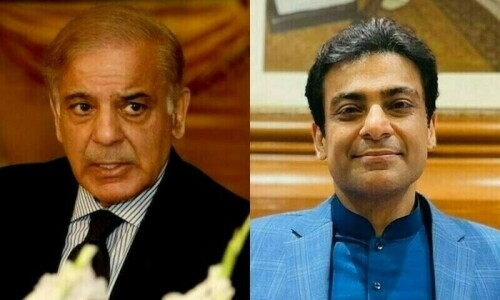DUBAI, Jan 20: A nuclear energy cooperation deal between the US and the United Arab Emirates, signed in the waning days of the Bush administration, could open the way for a flow of nuclear technology to Middle East nations looking for options if Iran pushes ahead with its nuclear ambitions.
The pact signed last week in Washington can help the UAE become the first Arab nation to develop a nuclear power-generating industry as early as 2017, according to US officials.
The Bush administration has championed the agreement as a model for promoting peaceful nuclear energy, while guarding against weapons proliferation. The deal sets the legal groundwork for US commercial nuclear trade with the UAE.
But it also allows Gulf nations worried about Iran’s nuclear programme to send a signal to Tehran.
’’The clear message to Iran is: If Tehran insists on pursuing its nuclear programme, we (Arab countries in region) are going to have one, although without enrichment,’’ said Mustafa Alani of the Dubai-based Gulf Research Centre.
’’Arab states can no longer ignore nuclear technology. There is a huge nuclear technology gap between the Arab states and their neighbours such as Iran, Pakistan and Israel. We need to work to narrow this gap,’’ Alani said.
Under the deal, the United Arab Emirates renounces the option of enriching uranium and producing nuclear fuel itself and instead it would buy fuel from abroad for a reactor. Uranium enrichment can be used to produce nuclear fuel but can also generate the material needed for nuclear weapons — which is why the United States and its allies are trying to get Iran to suspend its enrichment programme.
The State Department says the United States would have grounds to scrap the agreement if the UAE reneges on its commitment not to engage in enrichment or reprocessing activities. The UAE has foresworn nuclear arms as a signatory to the Nuclear Non-proliferation Treaty.
The UAE’s efforts to obtain nuclear technology are part of a collective decision by the six-member Gulf Cooperation Council to develop a nuclear energy programme, seen in part as a hedge by the Arab states against what they fear are Iran’s nuclear ambitions. The council includes UAE, Saudi Arabia, Kuwait, Qatar, Oman and Bahrain.
Currently, no Arab nation has a full-fledged nuclear energy programme, though several — like Egypt — have small-scale research reactors. The US signed a technology cooperation agreement with Saudi Arabia last month that also includes cooperation on a peaceful nuclear energy programme. Egypt has also said it intends to develop a peaceful energy programme and the US has said it is willing to help.
In Iran, Foreign Ministry Spokesman Hassan Qashqavi said the deal showed US double standards on nuclear technology, pointing to US pressure on Tehran to limit its programme.
Iran says its programme is aimed only at generating electricity and denies aiming to build a weapon — but the United Sates and many western allies say Iran has lied about or hidden part of its programme in the past, raising fears that Iran is seeking a nuclear weapon. They have tried to force Iran to suspend enrichment, but Tehran insists that — as a member of the NPT — it has the right to an enrichment programme.
’’The US tries to depict Iran as a threat to Arab states, and it may use the (UAE-US) deal to put Iran under pressure. But it will backfire,’’ top Iranian lawmaker Hosseini Sobhania said.
The UAE, which sits on some of the world’s largest energy reserves, says the country’s natural gas resources are inadequate to match the rising demand for energy in the booming country.
It is unclear if the incoming Obama administration will stick with the deal or abandon it. The US Congress will either block or ratify the deal within 90 days.
The deal was described by the US as a model for the developing world when it was signed on Thursday by Secretary of State Condoleezza Rice and UAE Foreign Minister Sheikh Abdullah bin Zayed Al Nahyan.
But some members of the House of Representatives oppose the deal over concerns that it would lead to a nuclear energy race in the Middle East that could turn into a weapons’ race.
Alani said importing nuclear technology does potentially provide the UAE a chance to seek nuclear weapons capability in the long term should Iran develop an atomic bomb.
’’Potentially yes, if Nuclear Non-proliferation Treaty is going to collapse and Iran get a bomb, then it will open the door for an arms race in the region,’’ Alani said.—AP











































Dear visitor, the comments section is undergoing an overhaul and will return soon.